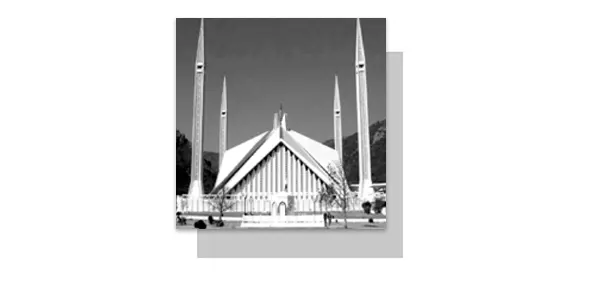AMIDST our busy day-to-day chores to keep our kitchens going, it is worthwhile once in a while, to stop and remember our legends in history that steered and enriched our national past and shaped our history. Let us today look at Shah Wali Ullah Dehlavi today.
First a quick look on how the world looked like in Shah Wali Ullah’s times, roughly three decades from1730 when Shah Wali Ullah actively embarked on his reform process till his death in 1762. European Trading companies had started to show in Asia and Africa, (in Africa more for slave trade by the Europeans), though the famous scramble for Africa was still nowhere insight. United States was still a colony; Ottoman Empire was strong and ruling large parts of Europe. In Persia, Nader Shah was redefining his empire with his invasions including that into India. Russia was being ruled by Romanovs. In Afghanistan, Ahmad Shah Durrani was busy consolidating his new empire. In Europe, Industrial revolution had still not kicked off.
In India Mughal empire was in a disarray. With weakening of central authority after Aurangzeb’s death, different regional forces had began to assert themselves, trying to break away from the Mughal authority; Maratha Confederacy established in Akbar’s time was asserting more and more influence in Imperial politics though still recognizing Mughal sovereignty. Sikhs were asserting their power in Punjab, as were Nawabs in Bengal and Oudh. British East India Company was fast gaining ground, both viz-a-vis Mughals and the Marathas. Competing with the British were the French who were actively fishing for their share of the pie of India. Nadir Shah’s attack on Delhi in 1739 was one of the major event of those time.
Decline of Mughal Empire meant end of Muslim rule which had consolidated since the establishment of Delhi Sultanate in 12th century. Besides their rule, what was at stake was their Muslim religious and cultural identity in sub-continent. Such was the view from Dehli in the days of Shah Wali Ullah Dehlavi. Shah Wali Ullah was born in 1703 to a respected religious family. His father Shah Abdul Rahim had founded Madrassah Rahimiya. Shah Wali Ullah embarked on his reform process after his return from Arabia in 1732.
Decline and decay of empires is a process of despair, chaos and witnessing a breaking social fabric. Despair and chaos weaken empire and weakening of empire fuels despair and chaos; a classical definition of vicious cycle. Muslims in South Asia were seeing all that in post Aurangzeb era, the times of Shah Wali Ullah. For thoughtful hearts and minds that is painful. Role of leaders’ and visionaries lies in breaking that vicious cycle. It was only natural for Shah Wali Ullah to react to that social and political decline of the Muslims. His diagnosis of the decline of Muslim political stature and social fabric was in their departure from the Islamic education, principles and morals. Among his recipes was his call for Muslim unity; directly accessing Quran and Sunnah and adherence to the cannons of Islam in political and social lives.
Shah Wali Ullah translated the Holy Quran into Persian which was then the official language read and understood by the educated classes. Building on that, his sons translated Holy Quran into Urdu which was spoken by the common man. Shah Wali Ullah called for a deeper understanding of Quran, encouraging Muslims to engage with it directly to seek guidance in their social and political lives. These translations alone were his great contribution to the Indian Muslims. A key aspect of his religious thought was the concept of Ijtihad (interpretation of Islamic law in changing circumstances). He insisted that scholars must engage in ijtihad to address contemporary issues facing the Muslims. In so doing, he aimed to adapt Islamic teachings to changing circumstances, promoting a dynamic understanding of Islam. Shah Wali Ullah was a strong proponent of Muslim Unity. Realizing that sectarian tendencies were dangerous fault lines in Muslim community, he tried to bridge the sectarian divides, particularly between Sunnis and Shias. His concept of Muslim Unity went beyond the borders of India and the Mughal Empire. His call was to all Muslims to unite and fight the enemies. In a Hindu majority India, Shah Wali Ullah could see Muslim identity in India under threat of extinction. He highlighted Muslim identity and reinvigorated confidence in its strength, provided Muslims stood united and adhered to the principles of Islam.
Shah Wali Ullah’s reforms and writings had a strong influence on later political movements in India which came during decades of further decline of Muslim polity in India. These importantly included Sir Syed Ahmad Khan’s Aligarh Movement in the 19th century. His concept of Muslim Unity, Ijtihad and reconstruction of the religious thought resonate with Allama Iqbal’s ideals. It would also be naïve to assume that Shah Wali Ullah’s call for Muslim unity and his view of Muslim identity as distinct from other Indian nations did not help shape the two-nation theory that later became the basis for creation of Pakistan. Shah Wali Ullah was a pivotal figure whose contributions shaped the 18h century religious and political scenarios. His efforts to revitalize Islamic thought and promote political unity among Muslims were crucial during a time of turmoil and change.
—The writer is former Special Secretary, Pakistan Foreign Ministry and former Envoy to Nepal and South Africa.
(mazharjavedlahore@gmail.com)










